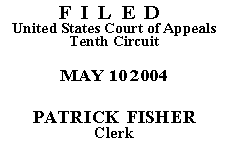

| In re:
SAFECO INSURANCE POLICY, with Charles and Shannon Skinner,
CHARLES SKINNER and SHANNON SKINNER, a married couple, and Derek Skinner, their minor son, Respondents- Counterplaintiffs-Appellees, v. SAFECO INSURANCE COMPANY, Petitioner-Counterdefendant.
JEFFRIES AND RUGGE, P.C., and RIPLEY B. HARWOOD, Jointly and Severally, Attorneys-Appellants. |
|
Our jurisdiction arises under 28 U.S.C. § 1291. On appeal, Counsel assert the district court erred (1) in awarding sanctions, and (2) in construing Counsel's state court motion to appoint a competent and disinterested umpire as "a lawsuit-initiating legal complaint." Aplt. Opening Br. at 3.
Federal Rule 11 requires an attorney to certify that any paper he or she submits to the court is not presented for any improper purpose, that it contains claims either warranted by existing law or by an argument for a change in the law, and that it makes factual allegations that have or are likely to have evidentiary support. Fed. R. Civ. P. 11. "We review all aspects of the district court's Rule 11 determination for abuse of discretion." Laurino v. Tate, 220 F.3d 1213, 1218 (10th Cir. 2000); see also Cooter & Gell v. Hartmarx Corp., 496 U.S. 384, 405 (1990). Reversal is appropriate only if the district court "based its ruling on an erroneous view of the law or on a clearly erroneous assessment of the evidence." Hughes v. City of Fort Collins, 926 F.2d 986, 988 (10th Cir. 1991) (quoting Cooter & Gell, 496 U.S. at 405).
Having reviewed the briefs, the record, and applicable law in light of the above-mentioned standards, we cannot say that the district court's imposition of sanctions amounts to an abuse of discretion. We therefore AFFIRM the district court's grant of sanctions for substantially the same reasons as stated in its memorandum opinion and order dated March 31, 2003.
Entered for the Court
Circuit Judge
*. After examining the briefs and appellate record, this panel has determined unanimously to grant the parties' request for a decision on the briefs without oral argument. See Fed. R. App. P. 34(f); 10th Cir. R. 34.1(G). The case is therefore ordered submitted without oral argument. This order and judgment is not binding precedent, except under the doctrines of law of the case, res judicata, and collateral estoppel. The court generally disfavors the citation of orders and judgments; nevertheless, an order and judgment may be cited under the terms and conditions of 10th Cir. R. 36.3.